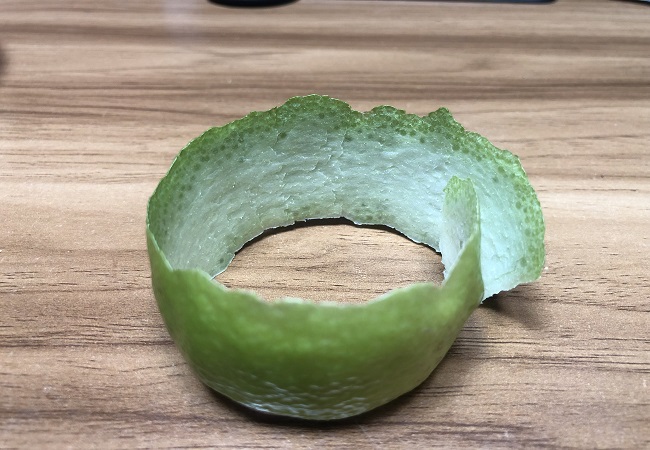As a responsible and caring guinea pig owner, it is essential to be mindful of the food choices we offer to our furry friends. Guinea pigs have specific dietary needs, and their well-being depends on a balanced and nutritionally rich diet.
While exploring different food options are good habit. In this article I am going to explain the result of my experiment about can guinea pigs eat lemon peels?
I will examine whether lemon peels are safe for guinea pigs to consume and the potential considerations to keep in mind. Lemon peels are the outer covering of the lemon fruit and are known for their distinct aroma and tangy flavor.
Some guinea pig owners wonder if these peels can be a suitable addition to their pets’ diet, considering their nutritional value and possible health risks.
Understanding the benefits and potential hazards associated with feeding lemon peels to guinea pigs is crucial for making informed decisions about their dietary choices. In this exploration, I will delve into the topic of whether guinea pigs can safely eat lemon peels.
We will assess the nutritional content of lemon peels, and the potential risks they pose to guinea pigs, and offer insights into maintaining a well-rounded diet for these small and lovable pets.
By gaining a comprehensive understanding of this topic, we can ensure the optimal health and happiness of our guinea pigs while making informed decisions about their diet.
Contents
Can Guinea Pigs Eat Lemon Peels?
As a diligent guinea pig owner, ensuring a healthy and balanced diet for our furry companions is of utmost importance. Exploring various food options through real-life experiments allows us to determine what is safe and suitable for our guinea pigs.
In this experiment, the focus is on investigating about can guinea pigs eat lemon skin or peels. The experiment examines the guinea pig’s response to the introduction of lemon peels, the potential risks associated with their consumption, and a discussion of the findings.
Experiment:
In this experiment, two guinea pigs named Max and Maya were offered 10 grams of lemon peels.
The aim was to observe their reaction and determine whether they would consume the lemon peels. Lemon peels were chosen for experimentation due to the distinct aroma and taste they possess.
Results:
Upon offering the lemon peels to Max and Maya, it became evident that the guinea pigs showed no interest in consuming them. Both guinea pigs approached the lemon peels, smelled them, but ultimately moved away without consuming any.
Consequently, all 10 grams of lemon peels remained uneaten. The experiment indicated that the guinea pigs did not like the taste or smell of lemon peels. If you want to observe more deeply then you should watch my video.
Lemon Peels Consumed Report:
|
Descriptions |
Amounts To Eat (Max & Maya) |
|
Was Given To Eat |
10 Grams |
|
They Ate |
0 Grams |
|
Percent Ate (%) |
0% |
|
Remains |
10 Grams |
Risks:
Guinea pigs should not be given lemon peels as they pose potential risks to their health. Lemon peels are highly acidic, which can lead to stomach upset and digestive issues for guinea pigs. Additionally, lemon peels can be a choking hazard due to their texture and fibrous nature.
It is important to note that the acidity in lemon peels can disrupt the delicate balance of a guinea pig’s digestive system and cause discomfort or even more severe complications.
Discussion:
The results of the experiment clearly demonstrate that guinea pigs do not have the inclination to consume lemon peels. Though the result of this experiment didn’t indicate that all guinea pigs don’t like to eat lemon peels. Because I did this experiment with my guinea pigs Max & Maya.
Whatever, some guinea pigs may show interest to eat. This observation aligns with the understanding that lemon peels are not suitable for guinea pigs due to their high acidity and potential hazards.
The acidic nature of lemon peels can lead to stomach upset and digestive problems in guinea pigs. It is crucial to prioritize the well-being of our pets by avoiding the introduction of lemon peels into their diet. If you have a lemon tree, it is important to prevent guinea pigs from accessing the lemons or any part of the tree.
Additionally, guinea pigs are attracted to the citrus scent, so it is essential to wash hands thoroughly after handling lemons or other citrus fruits to prevent any adverse effects on the guinea pigs.
Can Guinea Pigs Eat Peels?
While it is true that some guinea pigs may show an interest in eating peels, including lemon peels or orange peels, it is generally recommended to avoid feeding peels to guinea pigs as a regular part of their diet.

Here are some reasons of why you shouldn’t offer peels to your guinea pigs:
Digestive Concerns:
Peels from fruits and vegetables can be difficult for guinea pigs to digest due to their tough texture and higher fiber content. Guinea pigs have sensitive digestive systems that are more suited for consuming the fleshy parts of fruits and vegetables. Eating peels may lead to digestive discomfort, including bloating, gas, or even diarrhea.
Choking Hazard:
Peels can pose a choking hazard to guinea pigs, especially if they are not properly chewed or if the pieces are too large. Guinea pigs have small mouths and teeth that are not well-equipped to break down and safely consume peels. It is important to prioritize their safety by providing food that is easily chewable and digestible.
Pesticide Exposure:
If you choose to offer peels to your guinea pig, it is crucial to thoroughly wash the outside of the fruit to remove any pesticide residue. Peels, especially from conventionally grown fruits, can carry traces of pesticides, which can be harmful to guinea pigs if ingested.
While peels may contain some nutrients, such as Vitamin C, it is important to note that guinea pigs have specific dietary requirements that can be better met by offering them the flesh of fruits and vegetables instead. There are many other safe and nutritious options available for guinea pigs, such as leafy greens, bell peppers, and other guinea pig-friendly fruits and vegetables.
Read My Other Real Life Experiment Including:
- Can Guinea Pigs Eat Lemon Leaves?
- Can Guinea Pigs Eat Pineapple Skin?
- Can Guinea Pigs Eat Mango Skin?
Can Guinea Pigs Eat Lime Peels?
Guinea pigs should generally avoid eating lime peels. While some guinea pigs may show interest in lime peels, it is important to consider the potential risks and nutritional value before offering them to your furry friend.
Lime peels, like the fruit itself, are highly acidic. The high acidity can be problematic for guinea pigs as it can cause digestive issues and upset their delicate stomachs. Guinea pigs have sensitive digestive systems that are better suited for consuming foods with lower acidity levels. Therefore, it is advisable to avoid feeding lime peels as a regular part of their diet.
In addition to the acidity, lime peels contain some sugar. While guinea pigs need a small amount of sugar in their diet, excessive sugar intake can lead to weight gain, dental problems, and other health issues. Lime peels do not provide significant nutritional value or serve as an adequate source of Vitamin C for guinea pigs, which is an essential nutrient they require in their diet.
Another consideration is the potential presence of oxalates in lime peels. Oxalates are naturally occurring substances that can interfere with calcium absorption and contribute to the formation of bladder stones in guinea pigs. To minimize the risk of oxalate-related complications, it is best to limit the consumption of lime peels and other citrus peels in their diet.
While lime peels may be considered safe for occasional feeding, it is important to prioritize a well-balanced diet for your guinea pig that consists of fresh hay, guinea pig pellets, and a variety of guinea pig-friendly vegetables. These foods provide the necessary nutrients and contribute to their overall health and well-being.
If you are looking for alternative sources of Vitamin C for your guinea pig, consider offering them vegetables that are rich in this nutrient, such as bell peppers, kale, and broccoli. Additionally, you can consult with a veterinarian for recommendations on guinea pig-specific Vitamin C supplements that can ensure they receive an adequate amount of this essential nutrient.
Remember, the dietary needs of guinea pigs may vary, so it is always best to consult with a veterinarian who can provide personalized guidance based on your guinea pig’s specific requirements.
Are Lime Peels Safe For Guinea Pigs?
Lime peels, like the fruit itself, should be approached with caution when considering them as part of a guinea pig’s diet. Regarding lime peels specifically, they may be considered safe for occasional feeding, assuming your guinea pig shows interest in them.
However, there are a few important considerations. Lime peels should be organic and thoroughly cleaned since they may have coatings or residues. Also, the quantity should be limited due to the potential oxalate content and the guinea pig’s sensitive digestive system.
Here is some information to consider:
Acidity and Sugar:
Limes are highly acidic fruits, and their peels share this characteristic. The high acidity can potentially upset a guinea pig’s delicate digestive system.
Additionally, limes contain some sugar, which is not an ideal component for a guinea pig’s diet. The combination of acidity and sugar makes limes unsuitable as a regular or significant source of Vitamin C for guinea pigs.
Limited Vitamin C:
While lemons, a citrus fruit similar to limes, contain Vitamin C, limes provide considerably less of this essential nutrient. If you were considering lime peels as a Vitamin C source, they would not provide a sufficient amount to meet a guinea pig’s daily requirements.
Other Vitamin C-rich foods, such as fresh vegetables and guinea pig-specific Vitamin C supplements, are more reliable options.
Oxalate Content:
Citrus peels, including lime peels, may contain higher levels of oxalates. Oxalates are naturally occurring substances that can interfere with calcium absorption and potentially contribute to the formation of bladder stones in guinea pigs.
Consequently, it is important to limit the quantity of lime peels fed to guinea pigs to small amounts and not make them a regular part of their diet.
Useful Link: Are lime peels safe for guinea pigs? Risk and Benefits.
Frequently Asked Questions
Q: Do guinea pigs like lemon smell?
A: Guinea pigs may have different preferences when it comes to scents, including the smell of lemons. While some guinea pigs may be attracted to the citrusy aroma of lemons, others may not show much interest or may even find the smell unpleasant.
Each guinea pig has its own unique preferences and sensitivities, so their response to lemon smell can vary. It’s important to observe your guinea pig’s behavior and reactions to different scents to determine their individual preferences.
Q: Can guinea pigs eat lemon and lime?
A: Guinea pigs can consume small amounts of lemon as an occasional treat. Lemon is rich in Vitamin C, which is essential for their health. However, it’s important to note that lemon is acidic and can potentially upset their digestive system if given in excess.
As for limes, they should generally be avoided due to their high acidity and limited nutritional value for guinea pigs.
It’s best to prioritize a balanced diet consisting of guinea pig pellets, fresh vegetables, and hay to meet their nutritional needs. Always consult with a veterinarian for specific dietary recommendations for your guinea pigs.
Q: Are guinea pigs like to eat lemon peels?
A: Guinea pigs generally do not have a natural preference for eating lemon peels. While some guinea pigs may show a slight interest in exploring or sniffing lemon peels, they are unlikely to consume them in significant quantities.
Lemon peels are acidic and may not be appealing or easily digestible for guinea pigs. It’s important to prioritize their regular diet of hay, fresh vegetables, and specially formulated guinea pig pellets to ensure their nutritional needs are met.
My Final Opinion
Based on the experiment’s results, it is not recommended to feed lemon peels to guinea pigs. Guinea pigs did not show any interest in consuming the lemon peels, indicating their natural aversion to them.
Lemon peels pose potential risks due to their acidity and can cause digestive issues or choking hazards for guinea pigs.
It is crucial to prioritize the health and safety of our guinea pigs by offering them a diet consisting of appropriate and safe foods. Consulting with a veterinarian is always recommended to ensure the optimal well-being of our furry companions.
- Guinea Pig Names That Start with O – Unleash The Creativity - August 7, 2023
- Guinea Pig Names That Start With N – Popular & Nice Names - August 7, 2023
- Guinea Pig Names That Start With M – Good Unisex Names - August 7, 2023

